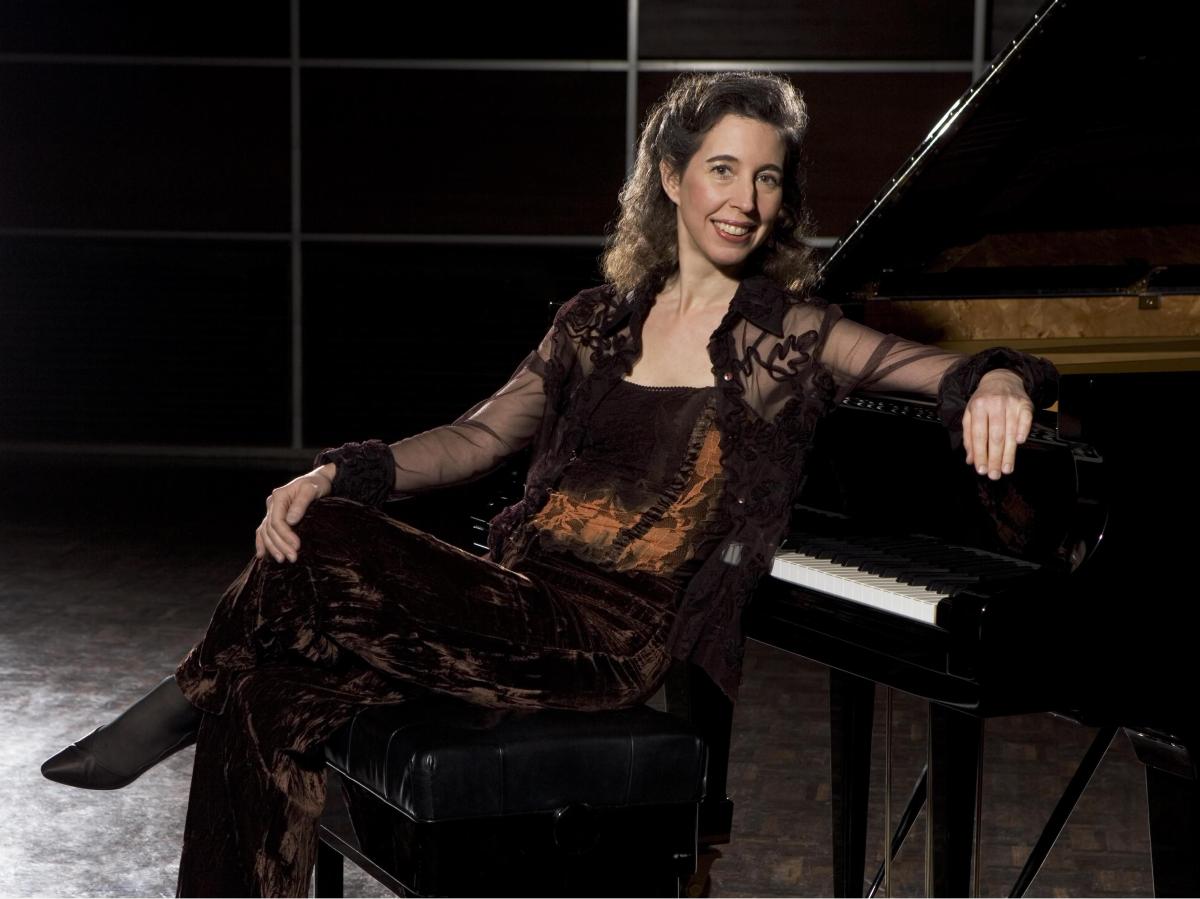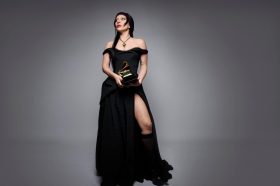Can you smell that, dear reader? That’s the scent of the future, it is, and it whiffs of electronics. For it is the first time, I believe, that I’ve seen a pianist using an iPad, although it should be noted that it is the second time I’ve seen this particular pianist. Renowned for her interpretations of Bach – and she graced the City Recital Hall stage last year, via the Sydney Symphony, to give us a rendition of the Goldberg Variations – she has returned, Bach again (I apologise immediately for that horrendous pun), to, in the second half of the concert, give us her version of Bach’s The Art of Fugue.
Before she began with this, she picked up a microphone so as to give an introduction to what we were about to hear. She was concerned, she said, not only to play the piece well, but to make sure that she had done as much as she could to ensure that the audience could appreciate it, too. This involved a, for the most part, quite entertaining fly-through of each of the first ten variations (the other variations happening in the second concert later in the month), with many a time where the microphone was hurriedly placed on the piano so as to free up her second hand when needed, then picked up again to once more speak. She also explained the methodology of her interpretation, and how one has to add a lot to what is the bare bones of the page, especially when, for instance, playing in the French style, as one of the variations requires.
But let us commence at the start. We began rather slowly, with three pieces of Bach’s transcribed by Wilhelm Kempff. The first, Nun komm, der Heiden Heiland, BWV659, was rather subdued for my tastes. The piece itself, that is, not the interpretation; it felt like a very quiet way to begin a concert. The other two of this triptych, however, picked up the tempo – Siciliano in G minor from Flute Sonata in E flat major, BWV1031 and Sinfonia in D major from Cantata no 29 Wir danken dir, Goot, wir danken dir, BWV29 – gave weight to the pseudo-lethargy of the first. It came across as a series of extended miniatures (paradoxical as that may be), and it was, by the end, quite enchanting. Throughout Hewitt proved herself to have a careful and thoroughly even touch that brought out the beauty in all the registers.
Beethoven came next, with his Piano Sonata no 28 in A major, op 101, and while one couldn’t say that it was particularly pyrotechnic, it was certainly a balanced and engaging affair – something the more pyrotechnical interpretations often lack, losing the listener when the fireworks fizz – and was well worth the listen.
Interval came, interval went, interval stayed away, and we entered in the never-ending realm of The Art of Fugue. It is, in any sense of the word, an epic journey, if not only because of its length then its variety as well. One had the feeling of safe hands throughout the 40 minutes of the piece, as if Hewitt was doing no more and no less than was required. Less, you see, would have, as she demonstrated particularly in her introduction to the French style following only the notes and instructions on the page, been rather monotone, while more would have complicated and mired the beauty. (And if there is anything Bach doesn’t need more of, it’s unnecessary complication.) This critic must admit to having his concentration slip every now and then, but whenever consciousness retuned its focus there was always aesthetic joy to be found.
There was an intelligence to Hewitt’s interpretation – an undeniable one – and her apparent easy mastery over it all was highly welcome. An encore was demanded, and we were given another transcription of Wilhelm Kempff’s, a dance by a non-Bach composer, and it too was beautiful. Some concerts are explosions; this was rather a concert bloom, and all the more special because of it.
Rating: 4 stars out of 5
Angela Hewitt
Musica Viva
Angela Hewitt (piano)
Johann Sebastian Bach (arranged by Wilhelm Kempff for piano) – Nun komm, der Heiden Heiland, BWV659, from Eighteen Leipzig Chorale Preludes
Johann Sebastian Bach (arranged by Wilhelm Kempff for piano) – Siciliano in G minor from Flute Sonata in E flat major, BWV1031
Johann Sebastian Bach (arranged by Wilhelm Kempff for piano) – Sinfonia in D major from Cantata no 29 Wir danken dir, Gott, wir danken dir, BWV29
Ludwig van Beethoven – Piano Sonata no 28 in A major, op 101
Johann Sebastian Bach – The Art of Fugue, BWV1080, Contrapunctus 1 – 10
City Recital Hall, Sydney
30 September




